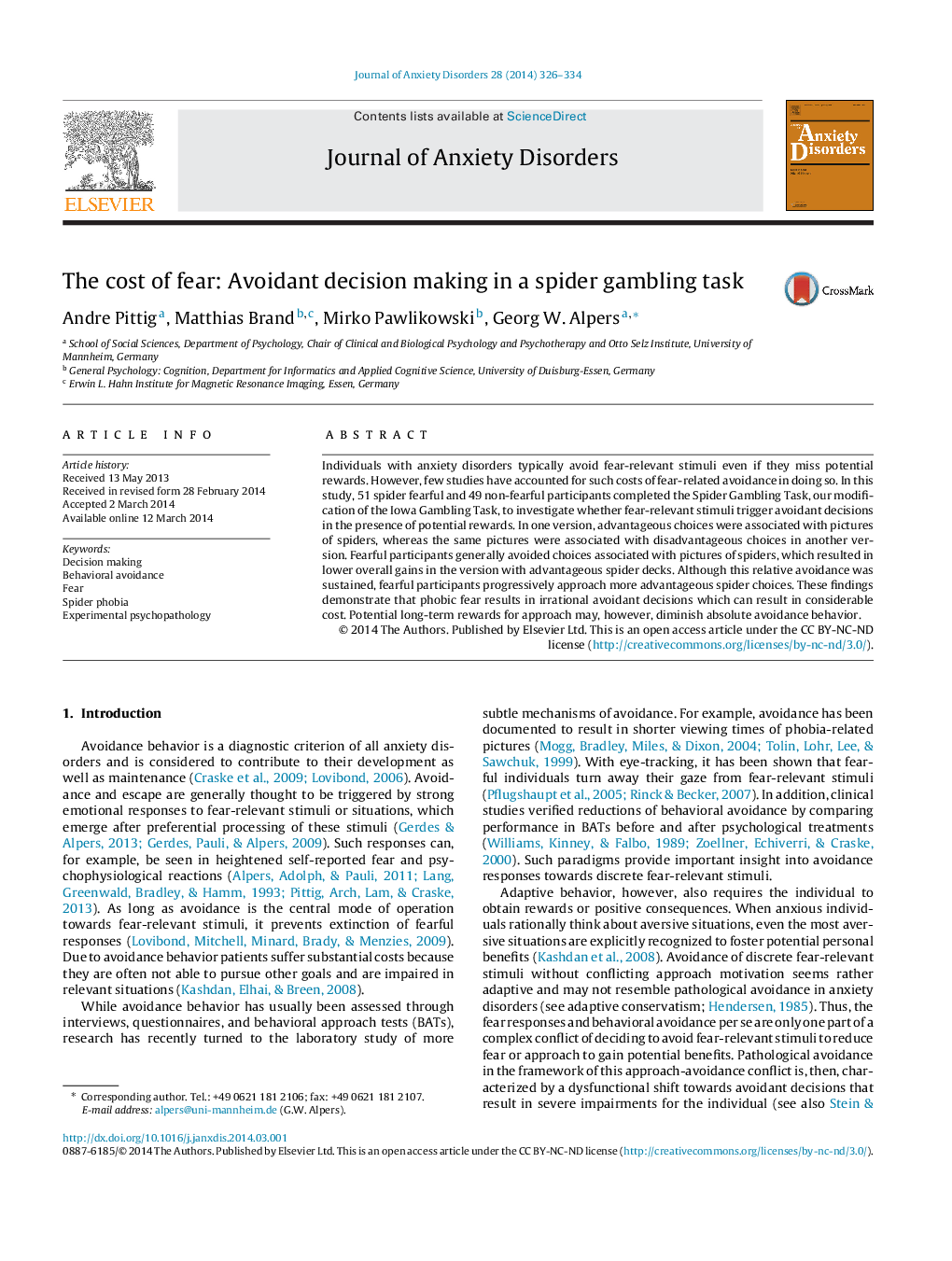| Article ID | Journal | Published Year | Pages | File Type |
|---|---|---|---|---|
| 10447624 | Journal of Anxiety Disorders | 2014 | 9 Pages |
Abstract
Individuals with anxiety disorders typically avoid fear-relevant stimuli even if they miss potential rewards. However, few studies have accounted for such costs of fear-related avoidance in doing so. In this study, 51 spider fearful and 49 non-fearful participants completed the Spider Gambling Task, our modification of the Iowa Gambling Task, to investigate whether fear-relevant stimuli trigger avoidant decisions in the presence of potential rewards. In one version, advantageous choices were associated with pictures of spiders, whereas the same pictures were associated with disadvantageous choices in another version. Fearful participants generally avoided choices associated with pictures of spiders, which resulted in lower overall gains in the version with advantageous spider decks. Although this relative avoidance was sustained, fearful participants progressively approach more advantageous spider choices. These findings demonstrate that phobic fear results in irrational avoidant decisions which can result in considerable cost. Potential long-term rewards for approach may, however, diminish absolute avoidance behavior.
Related Topics
Health Sciences
Medicine and Dentistry
Psychiatry and Mental Health
Authors
Andre Pittig, Matthias Brand, Mirko Pawlikowski, Georg W. Alpers,
